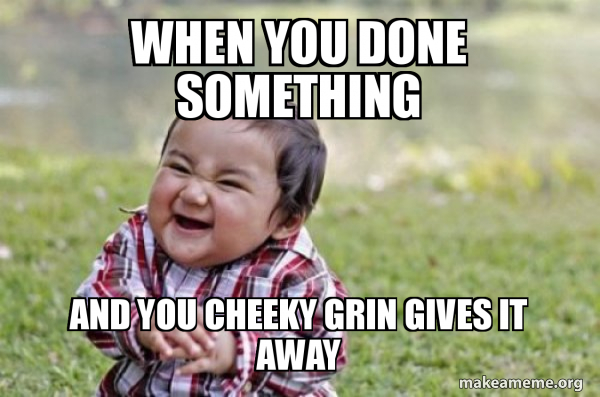“Cheeks” ถ้าแปลตรงตัวน่าจะเป็นคำศัพท์ที่หลายๆ คนคงคุ้นเคยกันดีอยู่แล้ว เพราะเป็นส่วนหนึ่งในร่างกายของเรา ซึ่งอาจจะหมายถึง แก้ม หรือ ก้น ก็ได้ แต่ในบทความนี้เราจะพาคุณไปรู้จักความหมายอื่นๆ ของคำศัพท์นี้ที่ถูกนำไปใช้รูปแบบของสแลงที่คุณอาจจะไม่เคยรู้มาก่อน ถ้าพร้อมแล้วมาอ่านบทความนี้กันเลยค่ะ ระดับความยาก: 2

Cheeks are great. They can be the things on your face or the things you sit on. They’re also useful for communication, as part of words or idioms. Here are a few ways to use the word “cheek” (that doesn’t describe a part of your body).
In a Crowded Space
“Cheek to cheek” is an expression you might not have heard because it’s rarely used these days. (Ask your parents. Or your grandparents.) Can you guess the meaning? It describes people being very close together. Think of 2 people dancing with their cheeks nearly touching.
There’s a similar saying, “cheek to jowl” that is even older than “cheek to cheek,” which means basically the same thing. But this is even more rare. You probably will never hear this one unless you watch really old movies.
When You Choose Peace
Most of us have heard the idiom “turn the other cheek.”
Imagine someone insults you. It makes you feel bad or angry (or both). You could say something nasty to that person. Or you might even use your muay Thai skills and attack them physically. But you don’t respond with anger or violence. Instead, you “turn the other cheek.”
This expression is also old — some say it’s from the Christian Bible — but it’s still commonly used today.
Just Kidding!
Now we come to the idiom “tongue in cheek” / “tongue-in-cheek.” If you say something “tongue in cheek,” you sound serious but you are actually being humorous (joking).
Doesn’t that sound like the same thing as being “sarcastic”? They can be used similarly but in most cases “tongue in cheek” is more lighthearted or fun, while sarcasm can be both funny and insulting.
Also today the term sarcastic is used much more often than the expression “tongue in cheek.”
Short and Cute
Finally, there’s the word “cheeky.” It’s very similar in meaning to “naughty.” If someone is acting in a cheeky way, they’re acting in a way they’re not supposed to.
Should you be unhappy if someone calls you cheeky? In the past, both cheeky and naughty were stronger in meaning in a negative way. Today they still describe misbehavior but almost in a cute or nice way.
So if you wanted to describe someone’s behavior that was really bad in a serious way, you would say they are being “rude” or “acting inappropriately,” not “cheeky.”

คำศัพท์ที่น่าสนใจในบทความ
- jowl (n) แก้มที่อูมจนย้อยลงมา, ขากรรไกรล่าง
- nasty (adj) น่าคลื่นไส้, น่าสะอิดสะเอียน, ไม่น่ายินดี, ไม่น่าพอใจ
- cheeky (adj) ทะลึ่ง, ไร้ยางอาย, หน้าด้าน, ที่ไม่เคารพ,
- misbehavior (n) การประพฤติตนไม่สมควร, พฤติกรรมที่ไม่เหมาะสม
- inappropriately (adv) ซึ่งไม่เหมาะสม, ซึ่งไม่ควร, ซึ่งไม่ถูกกาลเทศะ
 มีคำศัพท์คำไหนที่อยากให้อธิบายด้วยภาษาอังกฤษอีกบ้างไหมครับ ส่งเมลมาที่ andrew@longdo.com ได้เลยครับ
มีคำศัพท์คำไหนที่อยากให้อธิบายด้วยภาษาอังกฤษอีกบ้างไหมครับ ส่งเมลมาที่ andrew@longdo.com ได้เลยครับ
![]()



